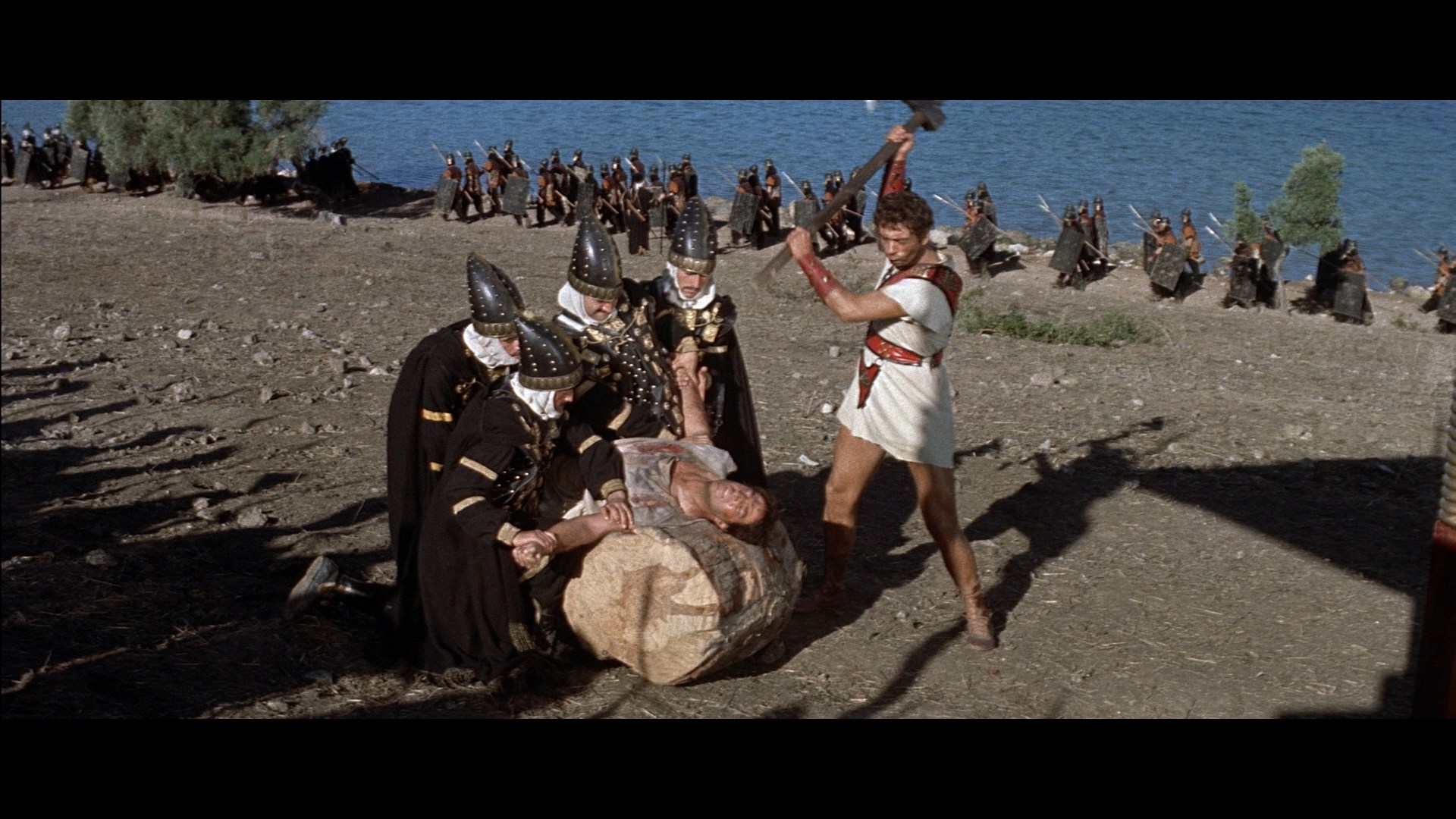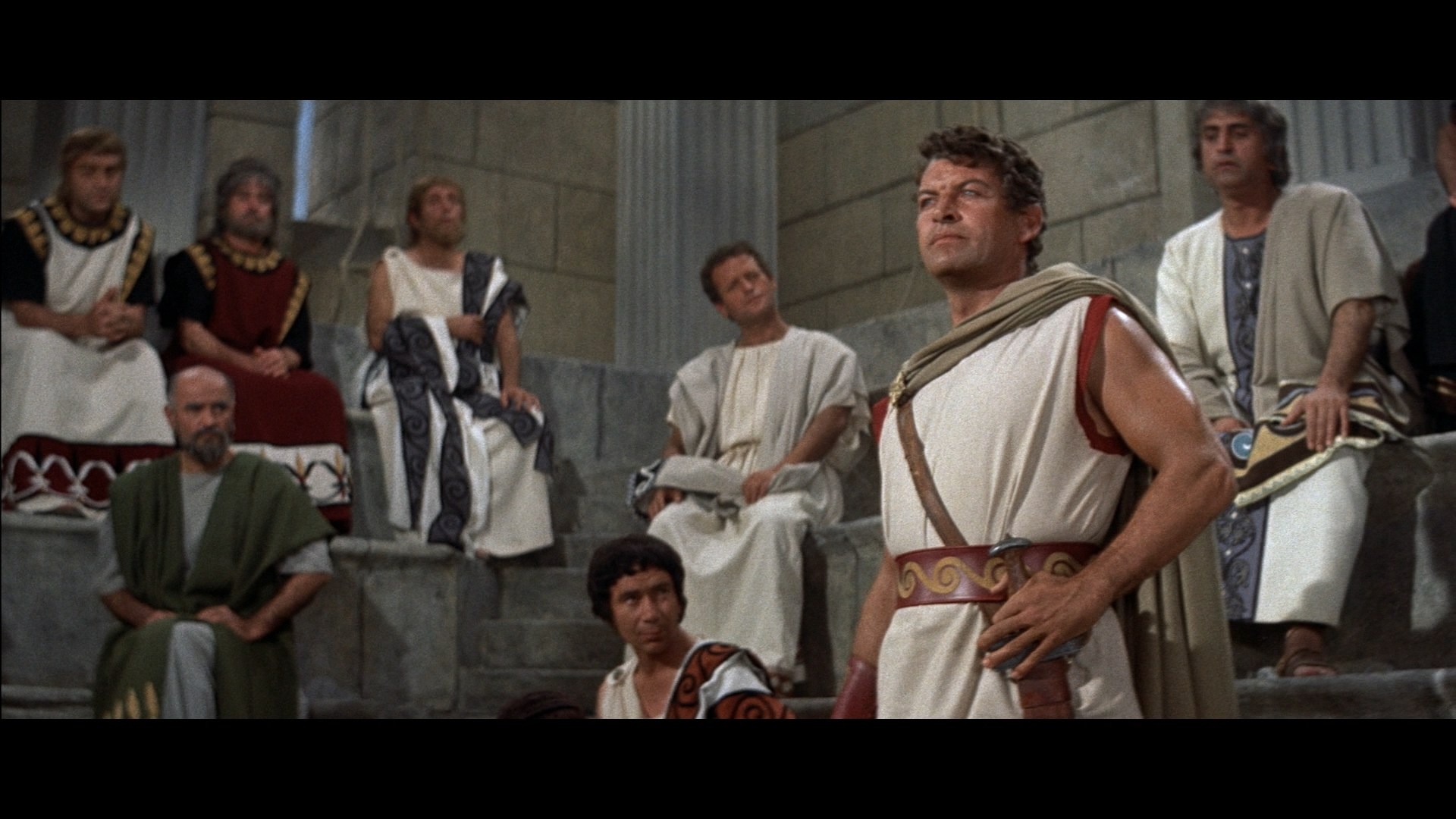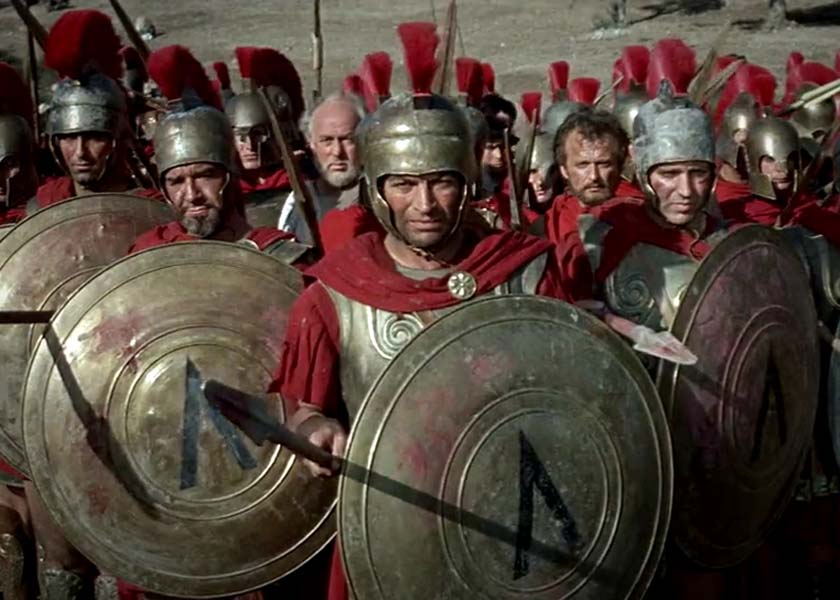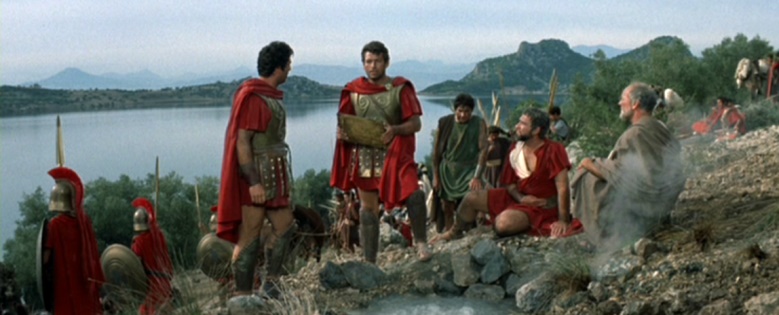🎬 The 300 Spartans (1962): A Heroic Tale of Sacrifice and Valor

The 300 Spartans (1962), directed by Rudolph Maté, is a historical epic that tells the legendary story of the Battle of Thermopylae, where King Leonidas and his band of 300 Spartan warriors stood against the overwhelming Persian forces of King Xerxes. This classic film, with its emphasis on heroism, sacrifice, and patriotism, delivers a thrilling narrative of one of history’s most iconic battles. While more recent adaptations of this story have focused on heightened visual spectacle, The 300 Spartans remains a poignant, character-driven portrayal of courage in the face of insurmountable odds.
Plot Overview:
The film begins with the growing tension between the Persian Empire, led by King Xerxes (David Farrar), and the Greek city-states, which remain divided and vulnerable. Xerxes, seeking to expand his empire, demands submission from Greece, but Sparta, led by King Leonidas (Richard Egan), refuses to bow to his will. Leonidas believes that freedom is worth defending, even at the cost of his life, and prepares to lead his elite force of 300 Spartan warriors to face the Persian army at the narrow mountain pass of Thermopylae.
Though vastly outnumbered by Xerxes’ enormous army, Leonidas and his Spartans hold their ground, using the terrain to their advantage. The tight passage of Thermopylae becomes a natural bottleneck, allowing the Spartans to repel wave after wave of Persian attacks with discipline and superior combat skill. Meanwhile, political intrigue unfolds in the Greek cities, as Leonidas and his men fight to buy time for the other city-states to unite against the Persian invasion.
The film explores the themes of loyalty, duty, and sacrifice, as Leonidas’s decision to march to Thermopylae is not only a strategic maneuver but also a symbolic stand for freedom. The courage of the Spartans inspires the rest of Greece, even as betrayal from within threatens their position. Ultimately, Leonidas and his men face certain death, but their heroic stand becomes a rallying cry for the eventual Greek victory over the Persians.

Character Development and Themes:
Richard Egan’s portrayal of King Leonidas is central to the film’s emotional weight. Egan imbues Leonidas with a sense of nobility, conviction, and quiet strength. His Leonidas is not just a warrior but a leader who understands the gravity of his mission. Leonidas’s stoic acceptance of the sacrifice he must make, both for his men and for the freedom of Greece, elevates him as a heroic figure whose legacy transcends the battlefield.
David Farrar’s King Xerxes is depicted as a proud and ambitious ruler, whose arrogance blinds him to the resolve of the Greeks. Farrar’s performance contrasts sharply with Egan’s, as Xerxes embodies excess and hubris, while Leonidas represents honor and humility. The film makes a clear distinction between the values of the two leaders, with Leonidas’s belief in freedom and duty standing in opposition to Xerxes’s desire for absolute power.
The supporting characters, particularly the Spartan warriors and the Athenians who aid in the battle, add depth to the narrative. The relationship between Leonidas and his fellow Spartans, including officers like Phylon (Barry Coe), demonstrates the strong bond of loyalty and brotherhood that defines the Spartan code of honor. Phylon’s subplot, which involves a forbidden love story with an Athenian woman, brings a personal dimension to the broader themes of duty and sacrifice.
The film’s central themes are heroism, sacrifice, and the price of freedom. The 300 Spartans explores the idea that true heroism lies in standing up for one’s beliefs, even in the face of overwhelming adversity. Leonidas’s decision to fight, knowing that it will lead to his death, speaks to the value of sacrifice for the greater good. The film also emphasizes the importance of unity, as the Spartans’ sacrifice is not just for themselves but for the entire Greek world.
The idea of duty, both to one’s country and to one’s comrades, is explored through the characters’ willingness to lay down their lives for something greater than themselves. This sense of duty is contrasted with the treachery of Ephialtes (Kieron Moore), the Greek traitor who reveals the hidden path to the Persians, resulting in the Spartans’ eventual defeat.

Action and Visual Style:
For a film produced in the early 1960s, The 300 Spartans offers impressive battle sequences that effectively convey the scale and intensity of the conflict. The fight choreography emphasizes the disciplined, phalanx-based fighting style of the Spartans, who use their shields and spears to great effect in the narrow pass. The film’s depiction of the Spartans’ tactical genius, as they use the terrain to negate the Persians’ numerical advantage, adds a layer of realism to the combat scenes.
While the battle scenes lack the visceral, CGI-enhanced spectacle of more recent films like 300 (2006), they are nonetheless engaging and well-executed for their time. The use of wide shots and practical effects gives the film an epic scope, capturing the scale of the Persian army and the claustrophobic nature of the fighting at Thermopylae.
The film also makes effective use of its locations, with the rugged, rocky terrain of Thermopylae serving as a natural stage for the battle. The stark contrast between the barren landscape and the grandeur of the Persian army’s colorful and ornate design emphasizes the stark divide between the two cultures. The Spartans’ austere, functional armor and weapons further reinforce their discipline and focus on martial excellence.
Musically, the score by Manos Hatzidakis provides a stirring accompaniment to the film’s dramatic moments, enhancing the emotional impact of the Spartans’ stand. The music swells during key battle sequences, but also allows for quieter, more introspective moments, particularly when Leonidas reflects on the fate of his men.
Criticism:
While The 300 Spartans is widely regarded as a classic, some critics have noted that its pacing can feel slow, particularly in the scenes leading up to the battle. The film takes its time setting up the political context and character relationships, which may feel drawn out to viewers expecting more immediate action. However, this buildup allows for a deeper emotional investment in the characters and their motivations once the battle begins.
Additionally, while the film focuses heavily on the bravery of the Spartans, it somewhat simplifies the political complexity of the Greek world, reducing the Athenians and other Greek states to supporting roles. The film’s portrayal of Xerxes and the Persians also leans into caricature at times, depicting them as decadent and tyrannical, which may feel overly simplistic to modern audiences.

Final Thoughts:
The 300 Spartans is a stirring and noble depiction of one of history’s most famous last stands. While it lacks the flashier, stylized approach of modern adaptations, the film’s focus on character, honor, and the gravity of sacrifice gives it a timeless appeal. Richard Egan’s portrayal of Leonidas and the film’s emphasis on loyalty, duty, and freedom make it a moving tribute to the real-life events that inspired the legend of Thermopylae.
For those interested in historical epics that blend action with moral and philosophical themes, The 300 Spartans remains a must-watch, offering a heroic tale that resonates with timeless themes of courage and sacrifice.
Movie Information:
- Title: The 300 Spartans
- Director: Rudolph Maté
- Starring: Richard Egan, Ralph Richardson, David Farrar, Barry Coe, Diane Baker
- Genre: Historical, War, Drama
- Release Date: August 1, 1962
- Running Time: 114 minutes
- Rating: NR
- Plot Summary: King Leonidas of Sparta leads 300 of his best warriors to the narrow pass at Thermopylae, where they make a heroic stand against the vastly superior Persian army led by King Xerxes. As the Spartans face certain death, their courage and sacrifice inspire the rest of Greece to unite against the Persian threat.
SUGGESTED VIDEO FOR YOU:
[Movie Review] The Great War of the Norse Gods || Thor 2011
[Movie Review] Resurrected Mummy: The Battle to Reclaim a Lover’s Soul











